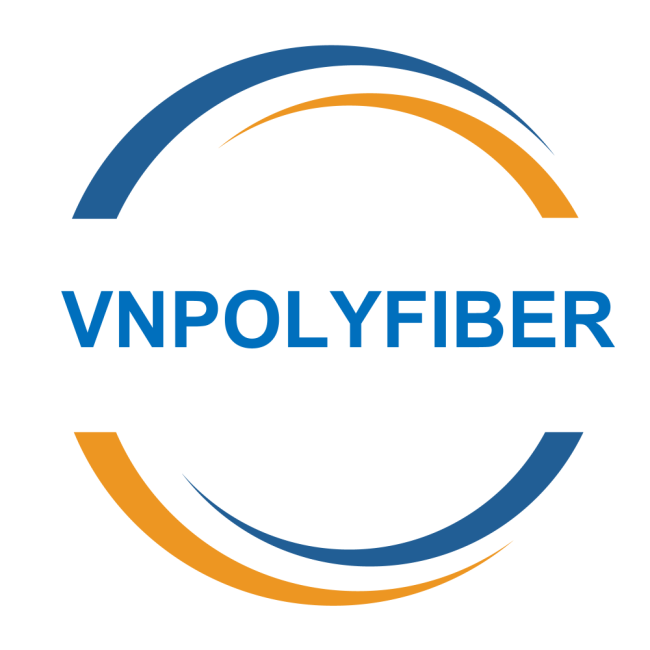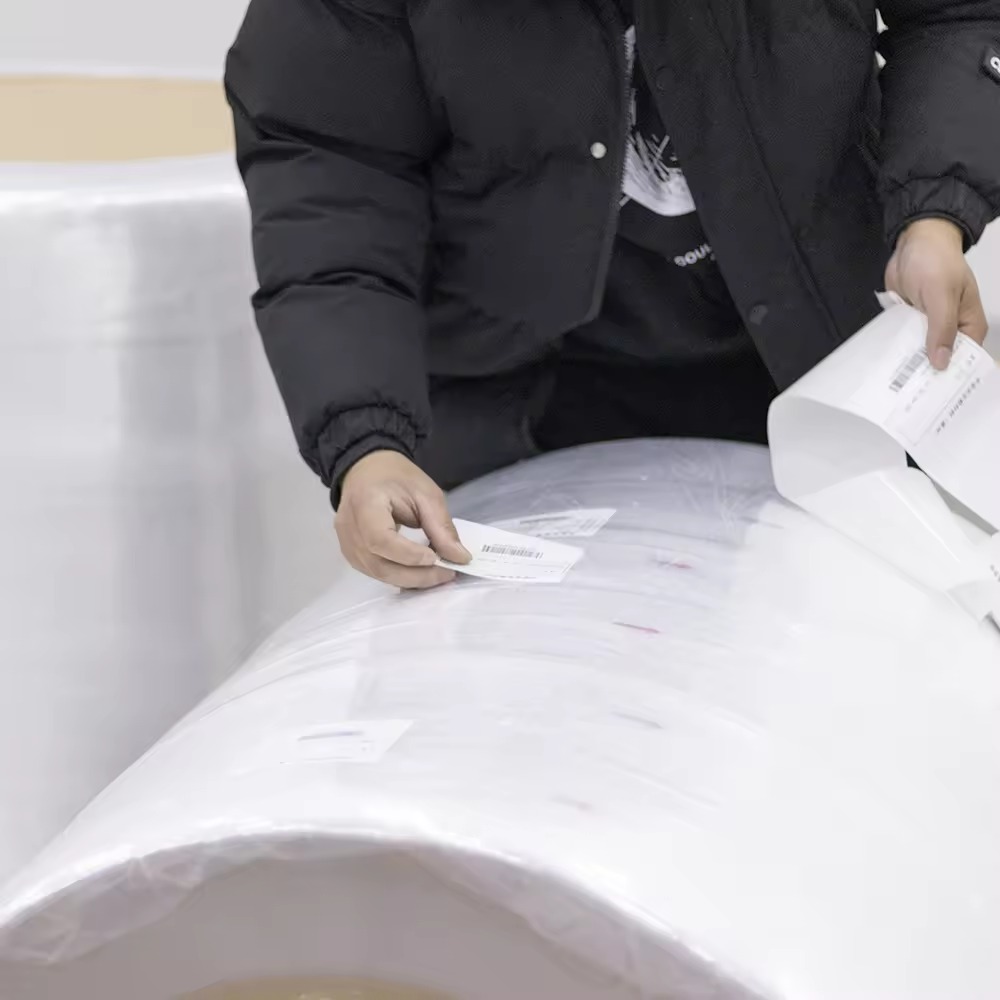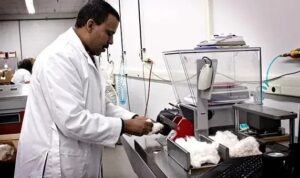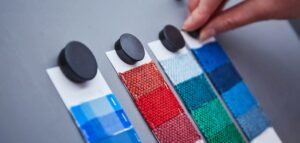The rising demand for eco-friendly textiles has accelerated interest in bamboo fiber spunlace nonwoven fabrics. Known for their softness, absorbency, breathability, and antibacterial properties, bamboo nonwovens are increasingly being used across industries where hygiene and comfort are critical. From baby care to medical applications and from household cleaning to lifestyle products, bamboo fiber spunlace nonwoven is redefining standards for safety, performance, and sustainability.
This article explores the diverse applications of bamboo nonwoven fabrics and how they are reshaping consumer and industrial markets worldwide.
Baby Care Applications
Baby Wipes
One of the fastest-growing uses of bamboo nonwoven wipes is in the baby care industry. Parents are increasingly conscious of the materials used on delicate infant skin, and bamboo’s natural softness and hypoallergenic qualities make it ideal for baby wipes. The spunlace process ensures durability, so wipes remain strong even when wet, while the antibacterial nature of bamboo reduces the need for harsh chemicals.
Diapers and Absorbent Pads
Bamboo nonwoven fabrics are also used in the absorbent layers of diapers and baby pads. Their moisture-wicking ability ensures dryness, while breathability reduces skin irritation. Additionally, the biodegradable nature of bamboo supports eco-conscious parents looking to minimize their environmental impact.
Feminine Hygiene Products
Sanitary Napkins and Panty Liners
In the feminine hygiene sector, bamboo nonwoven fabrics offer superior comfort and hygiene. Sanitary pads and panty liners made with bamboo spunlace nonwoven are soft, breathable, and naturally antibacterial, reducing odor and infection risks. Unlike synthetic alternatives, bamboo fabrics are biodegradable, offering women both performance and sustainability.
Expanding Demand
As global awareness of eco-friendly feminine hygiene grows, bamboo-based products are becoming a preferred alternative, particularly in markets with rising health awareness and environmental concern.
Medical and Healthcare Applications
Gauze, Bandages, and Wound Dressings
Healthcare applications demand materials that are sterile, breathable, and non-irritating. Bamboo spunlace nonwoven is an excellent choice for bandages, gauze, and wound dressings, thanks to its softness, antibacterial resistance, and moisture control. Its natural breathability supports faster healing by keeping wounds aerated while absorbing excess fluids.
Surgical Masks and Protective Apparel
With its filtration ability and comfort, bamboo nonwoven is increasingly being adopted in surgical masks, gowns, and drapes. The antibacterial properties reduce the need for additional chemical treatments, making them safer for prolonged skin contact.
Hygiene Wipes and Disposables
Hospitals and clinics rely heavily on disposable wipes for cleaning and sanitization. Bamboo nonwoven wipes provide high absorbency, strength, and antibacterial protection, ensuring safer environments for both patients and healthcare workers.
Household and Beauty Applications
Cleaning Wipes and Towels
Bamboo fiber spunlace nonwoven is gaining popularity in household cleaning for its lint-free and absorbent performance. It can be used to make durable cleaning wipes, kitchen towels, and floor wipes that outperform paper-based products while being more eco-friendly.
Beauty and Skincare Products
In the beauty industry, bamboo nonwovens are increasingly used for facial masks, cosmetic pads, and spa towels. Their softness and moisture retention enhance user comfort, while antibacterial properties reduce skin irritation. The biodegradable nature of bamboo appeals strongly to eco-conscious beauty consumers.
Lifestyle and Fashion Applications
Apparel and Undergarments
Bamboo nonwoven fabrics are also entering the fashion and lifestyle sector. They are used for undergarments, t-shirts, and casual wear where comfort, breathability, and antibacterial qualities are essential. Although spunlace nonwovens are not woven fabrics, new technologies enable hybrid applications that integrate bamboo nonwoven layers into apparel.
Towels, Bathrobes, and Bedding
Towels, bathrobes, bed sheets, and pillowcases made from bamboo nonwovens offer a luxurious yet sustainable option. They combine softness and moisture absorption with antibacterial resistance, making them especially appealing in hotels and spas.
Automotive and Interior Applications
Beyond consumer markets, bamboo nonwovens are finding a place in automotive interiors and home décor. They are used in car seats, upholstery, headliners, and soundproofing materials, offering eco-friendly alternatives to synthetic nonwovens. In home interiors, bamboo spunlace fabrics are used for curtains, cushions, and furniture covers, blending performance with sustainability.
Why Bamboo Nonwovens are Winning Across Sectors
The widespread adoption of bamboo fiber spunlace nonwoven fabric is driven by three major factors:
Performance – Bamboo’s natural softness, moisture absorption, and antibacterial properties make it superior to many synthetic alternatives.
Sustainability – With biodegradability and a renewable supply, bamboo meets consumer and regulatory demand for green materials.
Versatility – Its adaptability allows it to be used in both disposable hygiene products and durable lifestyle applications.
Conclusion
From baby wipes to medical bandages, household towels to luxury bathrobes, bamboo fiber spunlace nonwoven fabrics are transforming industries with their unique blend of comfort, performance, and sustainability. As consumer awareness of eco-friendly alternatives grows, bamboo nonwovens are set to expand even further across hygiene, healthcare, beauty, and lifestyle markets.
In a world where safety and sustainability are no longer optional, bamboo fiber spunlace nonwoven stands out as a material that combines natural advantages with modern innovation—a true driver of the future textile industry.





